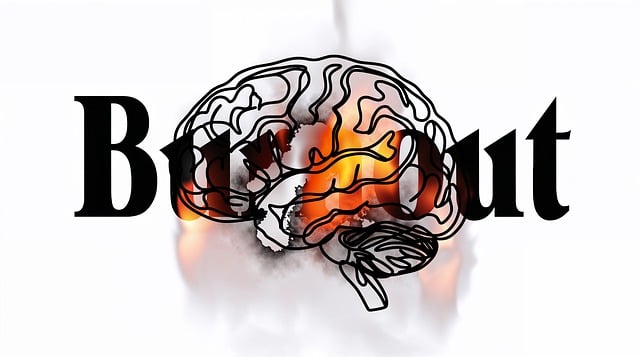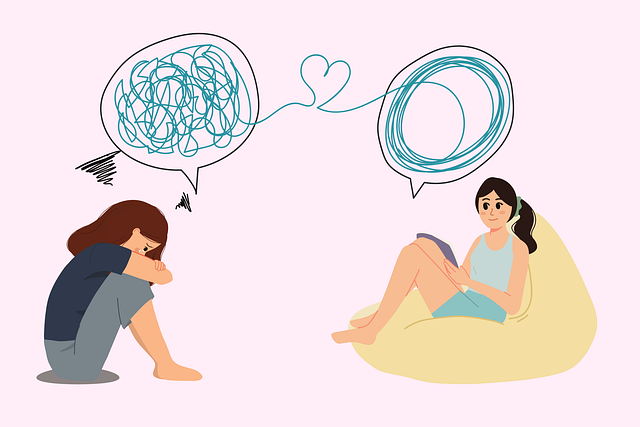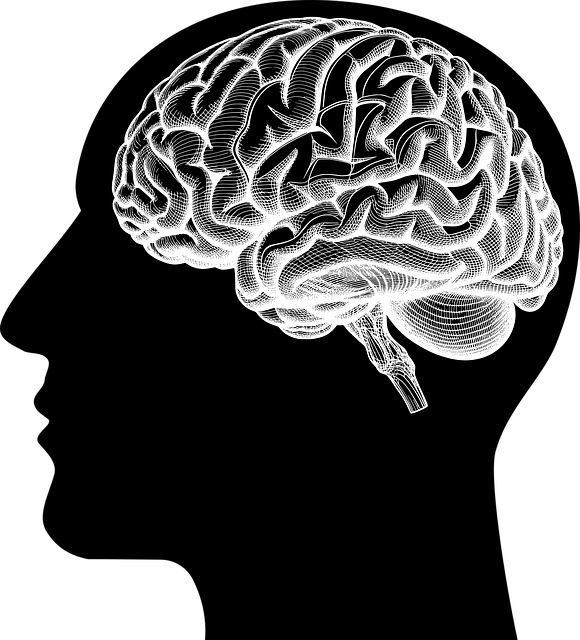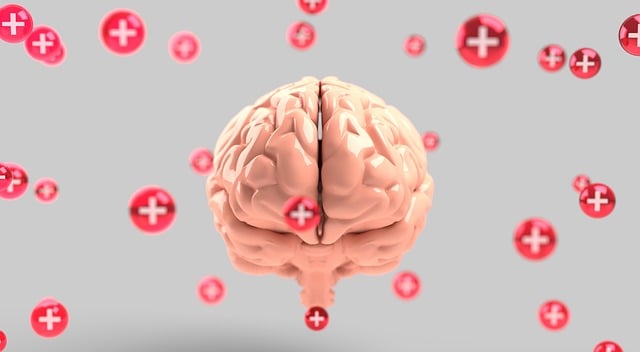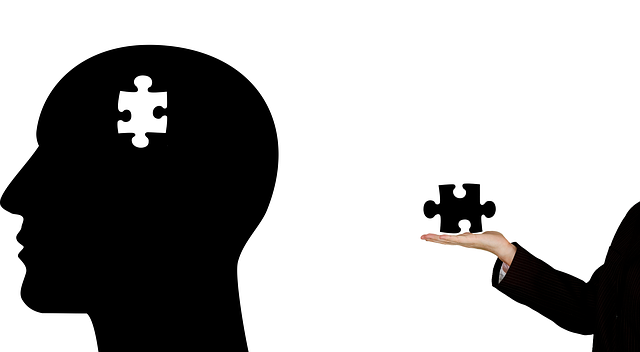Elderly individuals face unique emotional challenges, including isolation, chronic illnesses, and cognitive changes. Traditional therapy needs adaptation to meet their specific needs, focusing on gentle environments, family dynamics, coping skills, and social engagement. Effective communication within couples' relationships is crucial for mental wellness among older adults, as issues here significantly impact overall well-being. Therapy for elders couples addresses these through compassionate practices and techniques to enhance emotional regulation. Program evaluations using both quantitative (surveys, questionnaires) and qualitative (interviews, case studies) methods are vital to assess the effectiveness of interventions tailored to unique participant needs. By combining these approaches, programs can be improved to address therapy for elders couples communication issues and depression prevention, creating a supportive environment.
Mental wellness program evaluations are crucial in understanding and improving support for elderly individuals and couples facing communication issues in therapy. This article delves into the unique needs of elders, exploring how communication challenges within couples’ relationships impact overall mental health. We offer a comprehensive overview of evaluation methods, comparing quantitative and qualitative approaches to assess program effectiveness. Additionally, we present strategies for continuous improvement based on these findings, aiming to enhance therapeutic outcomes for vulnerable populations.
- Understanding the Unique Needs of Elderly Individuals in Therapy
- The Impact of Communication Issues on Couples' Relationships
- Evaluation Methods for Mental Wellness Programs: A Comprehensive Overview
- Assessing Program Effectiveness: Quantitative vs Qualitative Approaches
- Strategies for Continuous Improvement Based on Evaluation Findings
Understanding the Unique Needs of Elderly Individuals in Therapy

The unique needs of elderly individuals often require tailored approaches when it comes to therapy and mental wellness programs. As people age, they may face various challenges that impact their emotional well-being, including social isolation, chronic illnesses, and cognitive changes. These factors can complicate traditional therapeutic methods, making it crucial for professionals to adapt their practices to suit older adults’ specific circumstances. For instance, many elderly individuals prefer a more gentle and soothing therapy environment, taking into account any physical limitations or sensory considerations.
Effective therapy for elders should also address the unique dynamics of their relationships, particularly within couples or family units. Communication issues, which are common in later life due to cognitive changes or health-related challenges, can significantly impact an individual’s mental wellness. Therefore, therapists should incorporate strategies that enhance interpersonal connections and foster open dialogue, promoting a sense of belonging and support. The development of coping skills is vital, especially when it comes to managing age-related stress and adapting to life transitions. Additionally, community outreach program implementation can play a significant role in connecting elderly individuals with relevant resources and fostering social engagement, contributing to overall mental wellness.
The Impact of Communication Issues on Couples' Relationships

Communication issues within couples’ relationships can significantly impact mental wellness, particularly for older adults. Effective communication is a cornerstone of healthy relationships, fostering intimacy, understanding, and support between partners. When communication breaks down, it can lead to increased conflict, feelings of isolation, and even depression. The strain on the relationship may cause individuals to withdraw emotionally or express themselves in unhealthy ways, exacerbating existing mental health concerns.
Therapy for elders couples often addresses communication issues through compassion cultivation practices. These techniques encourage partners to listen actively, express their needs and fears openly, and respond with empathy. By improving emotional regulation and enhancing the couple’s ability to navigate difficult conversations, therapy can strengthen their bond and improve overall mental wellness. Additionally, risk management planning for mental health professionals plays a crucial role in supporting these couples by providing tools to manage potential challenges and ensuring a safe therapeutic environment.
Evaluation Methods for Mental Wellness Programs: A Comprehensive Overview

Mental wellness program evaluations are crucial for understanding the effectiveness and impact of interventions aimed at improving psychological well-being. A comprehensive evaluation involves diverse methods to capture the multifaceted nature of mental health. These include quantitative techniques such as surveys, questionnaires, and statistical analysis, which provide data on participants’ perceived improvements in symptoms, life satisfaction, and coping abilities.
Additionally, qualitative approaches offer deeper insights into individuals’ experiences. Interviews, focus groups, and case studies allow for exploring personal narratives, the development of coping skills, and the impact of communication strategies, particularly within the context of therapy for elders and couples. Evaluations should assess not only symptom reduction but also enhanced communication between partners or family members, utilizing conflict resolution techniques that foster healthier relationships. This holistic evaluation ensures that mental wellness programs are evidence-based, adaptable, and tailored to meet the unique needs of participants, especially when addressing issues like communication problems in older adult populations.
Assessing Program Effectiveness: Quantitative vs Qualitative Approaches

Evaluating the effectiveness of mental wellness programs for older couples often involves a blend of quantitative and qualitative research methods to gain a comprehensive understanding of their impact. Quantitative approaches, such as surveys and statistical analysis, can provide data on changes in symptoms like anxiety or depression over time. This allows researchers to quantify improvements and identify trends within the group, making it ideal for measuring program success on a larger scale. For instance, tracking scores on standardized assessments before and after therapy sessions for couples dealing with communication issues can demonstrate the program’s effectiveness in improving relationship dynamics.
Qualitative methods, however, offer deeper insights into participants’ experiences. Interviews and focus groups encourage individuals to share personal stories, revealing unobserved changes and unique benefits. This approach is particularly valuable for understanding the therapeutic process, identifying challenges faced by participants (like building empathy within couples), and exploring how programs influence their sense of community or self-worth. Integrating both quantitative and qualitative data provides a well-rounded evaluation, ensuring that program improvements are both statistically significant and aligned with the lived experiences of those who participate in therapy for elders’ communication issues and anxiety relief.
Strategies for Continuous Improvement Based on Evaluation Findings

After evaluating a mental wellness program, the next crucial step is to leverage the findings for continuous improvement. This involves a multifaceted approach tailored to address specific needs and challenges identified within the program. For instance, if the evaluation reveals high levels of stress among participants, implementing stress reduction methods can be a game-changer. Incorporating mindfulness workshops or yoga sessions into the program can offer therapeutic benefits while enhancing overall well-being. Similarly, for elders experiencing communication issues in couples therapy, specialized sessions focusing on effective communication strategies can significantly improve their relationships and mental health.
Additionally, the findings may highlight areas requiring structural adjustments. This could involve refining risk management planning for mental health professionals, ensuring they are adequately equipped to handle complex cases. By continuously updating and improving based on evaluation insights, the program can better serve its participants. For instance, incorporating feedback from both clients and therapists can help tailor interventions, making them more effective in addressing depression prevention efforts and fostering a supportive environment for all involved.
In evaluating mental wellness programs, especially those catering to the unique needs of elderly individuals and couples facing communication issues, a balanced approach combining quantitative and qualitative methods is essential. By assessing both program effectiveness and participant experiences, professionals can identify areas for improvement and ensure tailored support. Incorporating strategies based on evaluation findings allows for continuous enhancement, ultimately fostering better mental health outcomes, stronger relationships, and enhanced quality of life for elders and their partners within the therapeutic setting.
